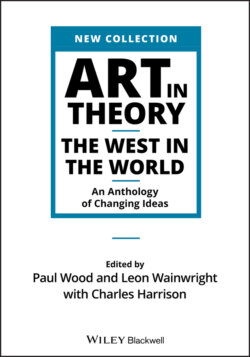Читать книгу Art in Theory - Группа авторов - Страница 90
IC12 John Dryden (1631–1700) on the ‘Noble Savage’
ОглавлениеDryden’s play The Conquest of Granada was first performed in 1670 and published in 1672. Its elevated diction, undeviating format of rhyming couplets and lack of concern for any form of psychological or historical realism led to criticism even in its own day. The present short extract is included here because, for all its supposed shortcomings, the play represents the earliest recorded usage of a phrase that was to ring down the centuries and exert a powerful influence on the arts. The Conquest of Granada is not, however, about America, or Africa, but about the final defeat of the Moors and their expulsion from Spain almost two hundred years earlier, in 1492. Nonetheless, the hero, Almanzor, who has arrived incognito in the Moorish camp, is said to have hailed from Africa, and to have fought for the Moors at the battle of Fez, in Morocco. The famous passage spoken by Almanzor comes in response to the Moorish King Mahomet Boabdelin passing a sentence of death on him after a fight between different factions of the Moorish army. Ozmyn is another Moorish soldier. The extracts are from lines 188–91 and 201–9 of the play, on pp. 29–30 of The Works of John Dryden, vol. 12, Plays, ed. John Loftis and David Stuart Rodes, Berkeley: University of California Press, 1978.
Boab.
Kill him; this insolent Unknown shall fall,
And be the Victime to attone you all.
Ozmyn.
If he must die, not one of us will live,
That life he gave for us, for him we give….
Boab.
The word which I have giv’n, Ile not revoke;
If he be brave he’s ready for the stroke.
Almanz.
No man has more contempt than I, of breath;
But whence hast thou the right to give me death?
Obey’d as Soveraign by thy Subjects be,
But know, that I alone am King of me.
I am as free as Nature first made man
’Ere the base Laws of Servitude began
When wild in woods the noble Savage ran.
